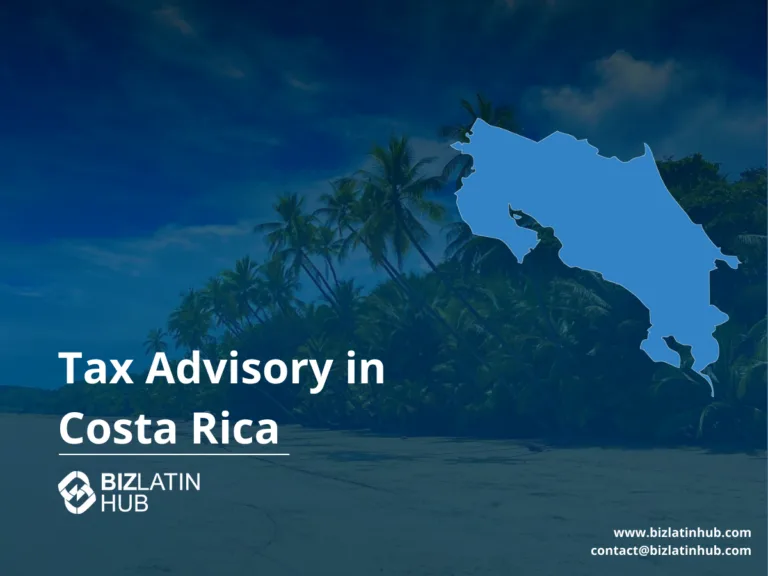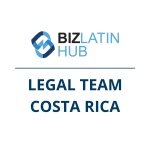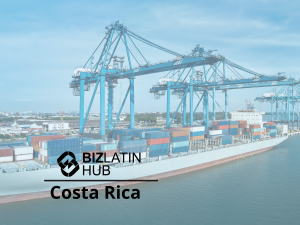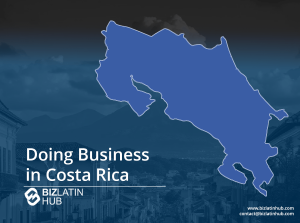Before starting operations in the country choosing the right corporate structure is a crucial step when register a company in Costa Rica. With its business-friendly environment and growing appeal to foreign investors, Colombia offers immense opportunities for growth. Collaborating with local experts ensures your business is strategically positioned to capitalize on this dynamic market. At Biz Latin Hub, we provide the knowledge and support you need to navigate legal complexities and confidently embark on your business journey in Costa Rica.
Key Takeaways
| What are the common legal entity types in Costa Rica | Corporation (Sociedad Anónima – S.A). Limited Liability Company (Sociedad de Responsabilidad Limitada – S.R.L). Branch Office. |
| What is the most common Costa Rican business entity? | The Limited Liability Corporation (LLC), or Sociedad de Responsabilidad Limitada, is the most common business entity in Costa Rica. Its popularity stems from its speed of formation and internal organization, which suit foreign businesses looking to enter the market. |
| What are the primary considerations when choosing a business entity in Costa Rica? | Ownership Structure. Tax Efficiency. Profit distribution. Transfer Pricing. Compliance. Flexibility. |
What are the Two Basic Types of Companies in Costa Rica?
The two most common legal entities in Costa Rica are:
- Corporation (Sociedad Anónima – S.A)
- Limited Liability Company (Sociedad de Responsabilidad Limitada – S.R.L)
Below are the key characteristics of each company type:
1. Corporation (Sociedad Anónima – S.A.)
The S.A. is the most common legal entity structure in Costa Rica. See below some of its key characteristics:
- A Public Document must be drafted with the bylaws and signed by the public notary and company shareholders.
- A minimum of two shareholders are required.
- There is no established minimum capital.
- A board needs to be appointed, consisting of three board members and a controlling agent.
The availability for the company name needs to be checked with the National Registry Database.
2. Limited Liability Company (Sociedad de Responsabilidad Limitada – S.R.L.)
The Limited Liability Company has the same requirements as the S.A., with the only exception being the administration; shareholders are required to appoint at least one General Manager. Shares are called quotas and there is no minimum required capital. However, the amount subscribed must be divisible by 100. The company name availability must also be checked on the National Registry database.
Alternative Option: Branches of Foreign Companies
Branches of foreign companies are incorporated with a public deed signed by the Public Notary and the power of attorney of the foreign company. Due to the complexities of drafting and signing all agreements, this legal structure is not recommended for SMEs. Apart from the requisites asked by the National Registry, it is also considered more expensive than other legal entities in Costa Rica.
Key Considerations When Choosing Types of Companies in Chile
Ownership Structure
Evaluate whether the chosen business structure allows full foreign ownership, as Costa Rica generally permits 100% foreign ownership across most industries. However, specific sectors like maritime concessions and certain natural resource activities may require local participation or have restrictions. Ensuring compliance with these regulations will help align your business with local laws and facilitate long-term success.
Tax Efficiency
Understand how Costa Rica’s tax system will impact your business operations. Corporate income tax rates are progressive, ranging from 10% to 30%, depending on annual revenue. Additionally, Costa Rica imposes a 13% VAT on goods and services. Businesses may qualify for tax benefits under the Free Trade Zone (FTZ) regime, which offers significant exemptions on income tax, import duties, and VAT for export-oriented companies or those in strategic sectors like technology and manufacturing. Proper tax planning is essential to optimize costs while ensuring compliance with local regulations.
Profit Distribution
Consider the tax implications of profit distribution in Costa Rica. Dividends distributed to non-residents are subject to a 15% withholding tax. For foreign investors, exploring double taxation treaties—such as those Costa Rica has with Spain, Germany, and Mexico—can help reduce withholding taxes and optimize shareholder returns. Clear profit repatriation strategies are critical for efficient fund transfers while minimizing tax burdens.
Transfer Pricing
Ensure compliance with Costa Rica’s transfer pricing regulations for cross-border transactions between related entities. Businesses are required to document and justify intercompany transactions to reflect arm’s-length pricing. This is particularly relevant for companies involved in import/export activities, intellectual property licensing, or intercompany loans. Preparing thorough transfer pricing documentation and annual reports will help avoid penalties and reduce the risk of audits.
Compliance
Prepare for Costa Rica’s regulatory and compliance requirements. All businesses must register with the National Registry and the tax authority (Hacienda). Companies are required to submit annual financial statements and file monthly tax declarations for VAT and income tax. Adopting International Financial Reporting Standards (IFRS) is mandatory for larger entities. Additionally, labor and social security compliance, including contributions to the Costa Rican Social Security Fund (CCSS), is critical to avoid legal issues.
Flexibility
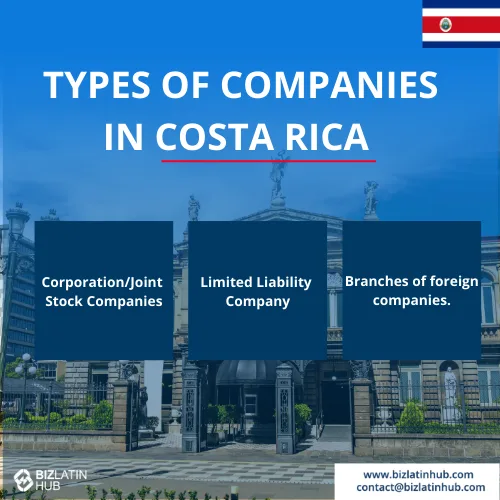
Choose a business structure that offers adaptability for your future growth and operational needs. In Costa Rica, the two most common legal entities are:
- Sociedad Anónima (S.A.): Suitable for larger businesses and those requiring greater capital-raising options. The S.A. allows shares to be traded and has a more formal governance structure, including a board of directors.
- Sociedad de Responsabilidad Limitada (SRL): Ideal for smaller businesses or those requiring fewer partners. The SRL offers simplicity, limited liability, and direct management by its partners.
Both structures provide limited liability, but the choice depends on your specific operational and ownership goals. Flexibility in adapting to Costa Rica’s evolving regulatory and business environment is crucial.
Note: We reccomend clients to choose the Limited Liability Company (S.R.L.) structure because it provides a balance of limited liability protection for its members and flexibility in management and ownership. Additionally, the S.R.L structure is well-suited for small to medium-sized enterprises seeking to establish a presence in Costa Rica.
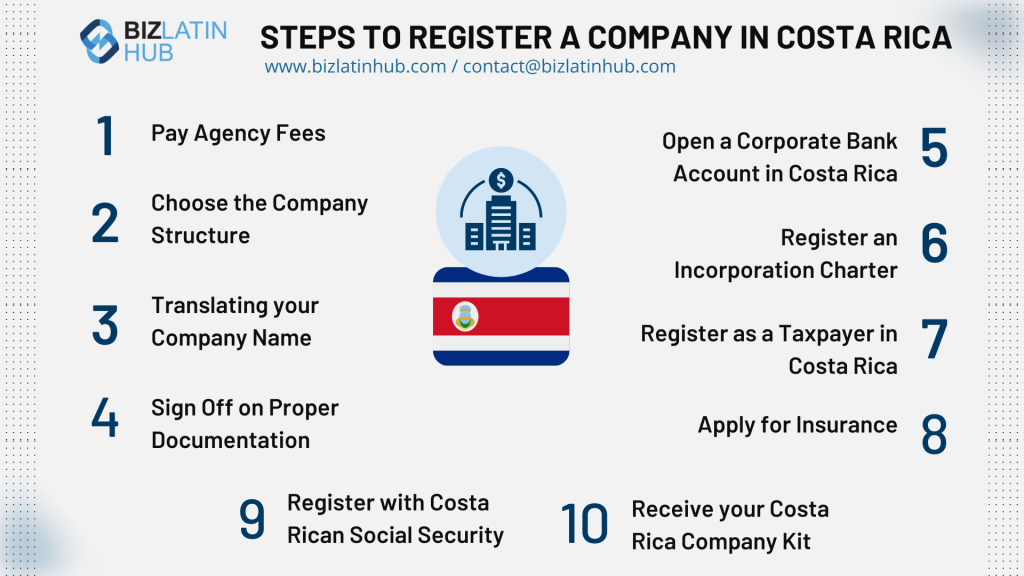
FAQs on Types of Legal Structures in Costa Rica
1. Can a foreigner register a company in Costa Rica?
Absolutely, foreigners can register a company in Costa Rica. However, certain restrictions or requirements may apply depending on the chosen legal entity structure.
2. What type of legal entity is an S.R.L (Sociedad de Responsabilidad Limitada) in Costa Rica?
The S.R.L is similar to an LLC type of company in other jurisdictions.
3. How do I create a company in Costa Rica?
To establish a company in Costa Rica, you need to follow specific legal procedures and fulfill regulatory requirements. It’s advisable to seek assistance from legal professionals to ensure compliance.
4. What is an LLC in Costa Rica?
An LLC, or Limited Liability Company, in Costa Rica is a hybrid legal structure that combines the flexibility of partnerships with the limited liability protection of corporations. It offers advantages such as pass-through taxation and simplified management structures.
5. What is the business structure of a Sociedad de Responsabilidad Limitada (S.R.L) in Costa Rica?
Shareholders are required to appoint at least one general manager. Shares are called quotas and there is no minimum required capital. However, the amount subscribed must be divisible by 100.
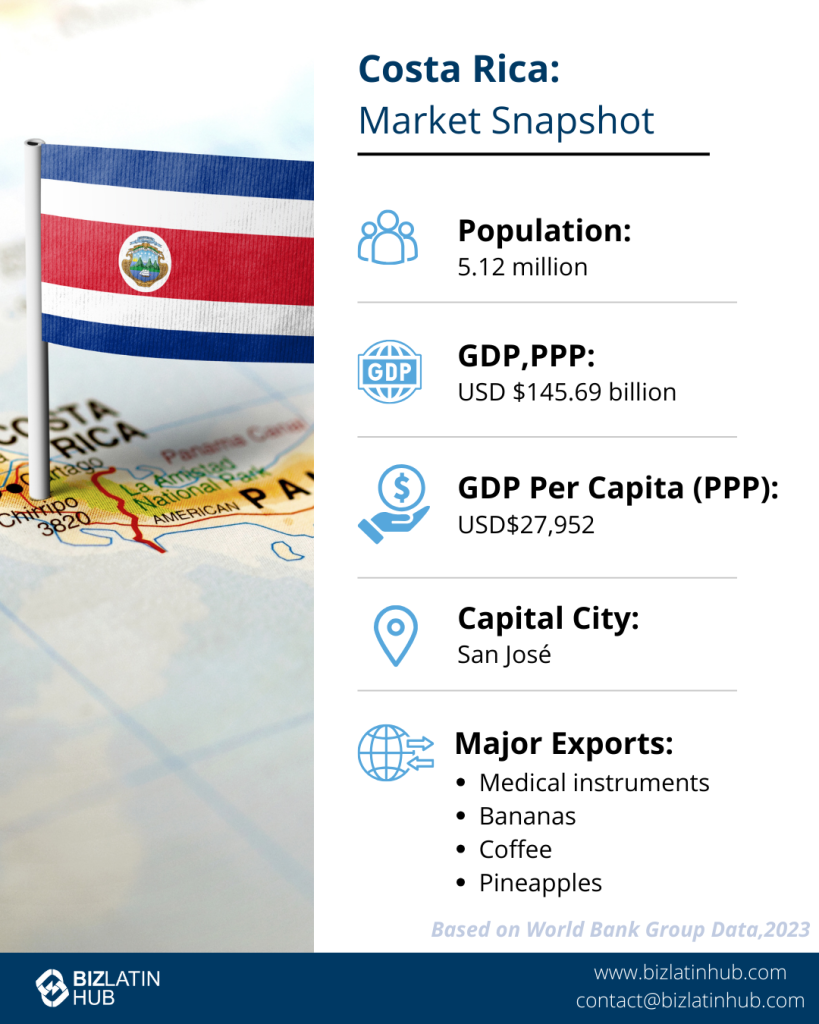
Why Choose to Invest in Costa Rica?
Costa Rica offers a stable political climate and a business-friendly environment, making it an attractive destination for investors. The country has enjoyed uninterrupted democracy for over a century, providing a secure setting for foreign investments.
The Costa Rican government also provides a competitive Free Trade Zone Regime that grants tax exemptions to companies investing in the country. This regime complies with OECD and WTO standards, offering benefits such as corporate income tax exemption, customs duties exemptions on imports and exports, and VAT exemptions for local purchases.
In tandem, Costa Rica’s commitment to sustainability is evident, with 98% of its electricity sourced from renewable energies like hydropower, wind, geothermal, and solar power. This dedication to green energy attracts multinational companies seeking environmentally responsible investment opportunities.
Interested in Beginning Commercial Operations in Costa Rica?
Choosing the type of company depends on which structure is best suited to your business needs. Much consideration needs to be taken before launching your operations in Costa Rica.
Given the favorable conditions in the country and the region as well as the economic growth, Biz Latin Hub through its company offers the experience and support necessary for investors to have a successful market entry in Costa Rica. Feel free to contact us now.

